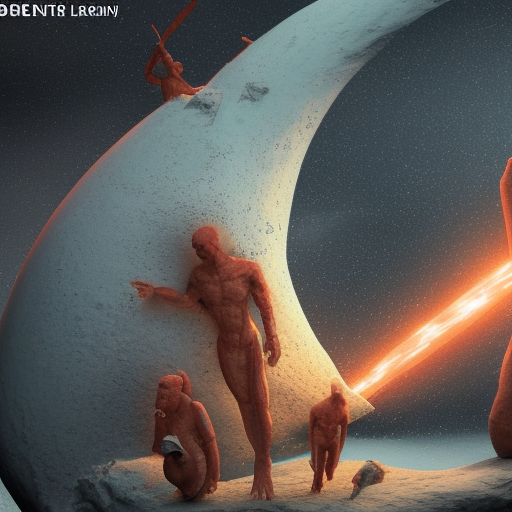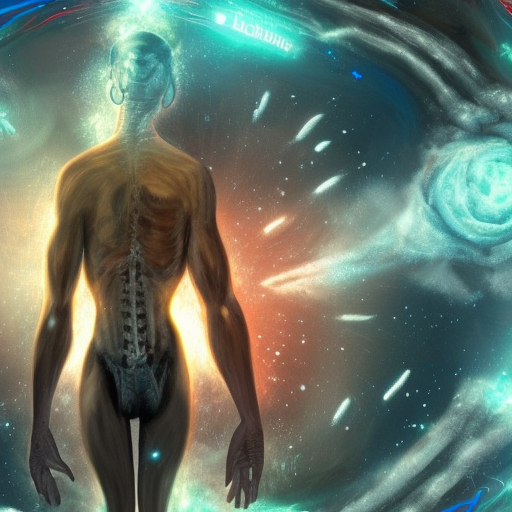
Please provide the reasons why you think "yes" or "no" response to this question.
People are also trading
I remain doubtful on this. While everything looks promising as of now, we may just about to fight a tough war on aging, like what happened to the war on cancer half a century ago.
And I think there are reasons to we may actually just about to fight a tough war on aging, because:
To attain immortality, curing aging is likely a prerequisite.
It has been demonstrated that aging is a complex process affecting genetic networks, and altering one(or few) gene won’t stop it. And considering that aging is not just a problem of genetic networks. This means there's a possibility that the problems that need to handle could grow exponentially, potentially cancelling out advantages brought by AGI and even ASI.
Non-technological approaches like lifestyle are out of question, such approaches clearly have limits.
Genetic-related approaches are likely a part of a cure for aging, and all techniques to directly edit genes share certain problems like off-target effect and destabilization of the whole genome, and there does not seem to be an effective and safe way to solve this problem yet. Theoretically you need to work only on certain key cells like immune cells, for example, it has been suggested that gene-edited CAR T-cells could be used as senolytics clearing out senescent cells, but problems related to gene editing remain even if we only work on a limited amount of key cells responsible for de-aging.
Another genetic-related approach is not to directly edit the genome but to change epigenetics i.e. reprogramming, but the known ways to do it, like the use of Yamanaka factors(i.e. Oct4, Sox2, Klf4, c-Myc), can greatly increase the risk of cancer, and the approach of using OSK factors(i.e. Yamanaka factors minus the carcinogenic c-Myc) does not seem that promising as initially thought(at least no news about the new application of OSK factors yet when this comment is written); besides inducing these factors may still end up involving direct gene-editing, which means problems related to gene-editing approaches may also be a concern to this approach as well.
Induced stem cells like iPS cells suffer from safety issues related to the gene-editing processes, a safer choice is to use naturally-created stem cells like embryoic stem cells, but such cells are not widely available and may never become widely available.
3D printed organs rely on the use of stem cells or gene-edited cells, especially in case we want to de-age the biological age of the 3D printed organs, and as a result, de-aging by transplanting 3D printed organs with de-aged cells will rely on stem cells or gene-editing techniques, and as a result, it will not be a way to bypass the restrictions on such approaches listed above.
A safe and inexpensive approach is to not directly transplant cells or such, but use exosomes. However, the effectiveness of exosomes is unknown and might have been exaggerated, and you need an repeated application of exosomes to keep the effects. In other words, there might not be a way that is both safe, effective and inexpensive.
Still another genetic-related approach is to tweak on the telomere, but again, the increment of telomere length is associated with the risk of cancer.
The inherent problems of genetic-related approaches indicate that we may need to always closely supervise the safety of edited cells, which could reduce the availability of such techniques and could greatly reduce their application potentials on curing aging.
Approaches relying on drugs is another likely part of a cure for aging, but drugs, or combinations of them, have not shown to be more effective than lifestyle approaches, which hinits that drugs may not help much in anti-aging.
The use of nanomachines in organisms remains speculative; besides, certain types of nanomachines are just unrealistic and will always remain in the realm of fantasy and science fiction.
Aubrey de Grey's approach of attaining longevity escape velocity is that you can reverse biological aging by 20 years with the 1st gen therapy, waiting 20 years and get another reversal of 20 years with the 2st gen therapy, and so on. A major issue of this approach is that technological advancement itself is a subject of the law of diminishing returns.
So considering the law of diminishing returns, what if it turns out that the 1st gen de-aging therapy reverses aging by 20 years, but the 2st gen de-aging therapy reverses aging by 30 years on those who never got de-aging treatments and reverses aging by 15 years on those who had got 1st gen treatments, and 3st gen de-aging therapy reverses aging by 40 years on those who never got de-aging treatments and reverses aging by 10 years on those who had got 1st gen treatments, and you always need to wait about 20 years for next-gen therapies?
Alma 12:21-27: "...but it was appointed unto men that they must die; and after death, they must come to judgment,..."
The same (Book of Mormon) passages relate to the problem of how immortality, if we aren't prepared, would have made men miserable, for "this life became a probationary state, a time to prepare to meet God."
So, we're going to have to wait for that miracle on more than just earth-bound sciences.
Of course no one knows the definitive answer to this question, so this question must resolve to a probability, rather than a definitive YES/NO. So, "Biological Immortality," is defined as, "living a super long time," like Hydra Jellyfish, which are essentially organisms composed of large amounts of stem-cell like cells which can constantly divide and replenish, so they are hypothetically immortal, though obviously they die due to natural causes. So human livers are already biologically immortal relative to other cell types in our body, because they constantly replenish, whereas the rest of our cells stick around for much longer. There's also HeLa cultures, originally from a single human's cancer cells, which have been replicated for about 80 years and likely will continue to be replicated, "forever." But the question isn't about a part of a human or a lab environment, "human beings," - presumably means, "the vast majority of humans," or, "a large group of humans." While consensus in popular online research seems to point toward biological immortality being achievable in the next 50 or so years, this does not take into account the extreme cost of replicating biological lab achievements to a wide environment. So while a super isolated treatment may occur in a lab environment in the year 2070 at a high probability, it would probably take another 20 years before it's generally accessible in a narrow sense (sort of like with the replication of Dolly the Sheep in the 1990s, and then 20 years later, everyone having access to 23&Me, or mRNA vaccines originally being researched in the 1960s, but not being widely available until 2020). So beyond that, it may take another 20-50 more years before biological immortality transitions from being something like a treatment, "oh yeah I had bioImmort on my heart last year, best thing I ever did, I feel great," might be something someone says in 2090 to...huge portions of the population having access to that, at presumably an expensive cost, in the year 2120 or 2140 or so. Of course, it could be way harder to achieve biological immortality than anyone is making it out to be, as clickbait pop-pseudoscience articles are much more popular than just telling the truth, which is, it's much harder to achieve than we wish, meaning, it won't be possible for 1000+ years of research, or if you were to assign probabilities to things, it's likely 5% or less that it happens by 2140 and 95% that it happens by the year 10,000. So here's the catch, that all sounds wonderful, but...at the same time, the chance of human extinction runs at estimates anywhere from 20% on the high end by the Future of Humanity Insitute in Oxford by the year 2100 to 3% by Metacalculus https://www.metaculus.com/questions/578/human-extinction-by-2100 ... so it's reasonable to believe that if we're at a run rate of a 3% chance of extinction per century, which, assuming that since we're depleting the earth's resources, that probability likely goes up every century, even on the low end, we're probably at a 10% chance of extinction by 2200, so maybe a 7% chance of extinction by 2140, with only an around 5% chance of achieving wide-scale biological immortality, we are about 1.4X more likely to go extinct than to achieve biological immortality, which makes intuitive sense if you think about it...the ruination of mankind is typically selfishness, the tragedy of the commons is a real thing...basically, we're just going to be more likely to wipe ourselves out rather than improve ourselves to that level, in the long range. Also, we don't even have to go extinct to fail to achieve biological immortality for a large swath of humans, we just have to achieve a state of civilization that can't support scientific and engineering advancement, e.g., the old saying, "I don't know what WW3 will be fought with, but I know that WW4 will be fought with sticks and stones." So, you can add an additional probability on that side of the scale, e.g. not necessarily that extinction has to happen, but just a massive amount of societal collapse to the point where the average person is living in the year 1400 again...except there are also nuclear weapons and instructions on how to make them lying about. So basically, this market, sitting at 88% is WAY overvalued, or it's just assuming that a lab environment would be fine. I don't think a lab environment is sufficient to answer the question, so I'm placing a bet against, I think the market probability should be much lower, perhaps sitting at around 50/50 or even 30% rather than closer to 90%. Really? 90%? Do people really think that there's a 90% chance that we're going to achieve a sci-fi concept before we blow ourselves to smithereens? C'mon - did you not see the pandemic and how civilization altering and resource constricting that has been? That was just a small sample of what can easily happen to humans.
